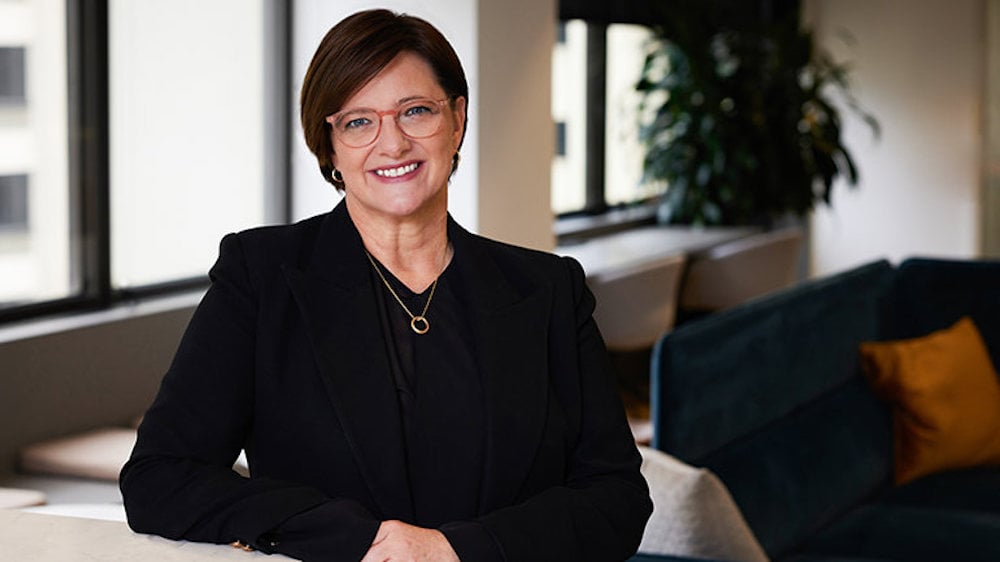Snap CEO Evan Spiegel isn’t ready to sell his company
Snap CEO Evan Spiegel. | Snap Inc/Getty Images for Snap Inc “I believe we’re far from reaching our full potential.” Snap co-founder and CEO Evan Spiegel is leading a company with a steeply declining stock price, competition from a much bigger industry rival, and painful staff cuts — but he isn’t ready to give up. “When I look at the long-term opportunity in our business, I really believe it’s enormous,” said Spiegel, speaking with Kara Swisher and Scott Galloway at Vox Media’s Code Conference in Beverly Hills, California, on Wednesday. “I believe we’re far from reaching our full potential. And I believe over time, the stock price has gone up and down, and we’ve tried to stay focused on delivering real value for shareholders.” Snap’s stock price has lost around 76 percent of its value since the beginning of this year. Last week, the company laid off 20 percent of its workforce, or over 1,200 employees — one of the biggest in a recent wave of layoffs in tech. The company also decided to cancel at least six of its products, including its self-flying camera drone, Pixy. At the same time, Spiegel is going up against some major competition from social media giant Meta, which invested $10 billion last year on AR/VR-related initiatives similar to what Snap has long been working on with its Spectacles video-recording glasses and other hardware projects. “What gives me a lot of hope is that, you know, historically in our industry, spending huge amounts of money is not always correlated with long-term success,” Spiegel said. He added that even if a company’s competitors “have way more money,” that doesn’t mean they’ll win. “In fact, I think what happens is that many of those companies that are spending a lot more aren’t having to make hard choices.” Snap is one of several consumer tech companies that has been hit hard by recent inflation and global economic uncertainty, as well as recent changes to Apple’s privacy settings that make it harder for social media companies to advertise to mobile users. These factors caused hiring freezes and layoffs at some of the most valuable companies in the world, like Google and Facebook. But the impact has been particularly large at Snap, which is a comparatively smaller company with fewer sources of revenue. The company also expanded its staff size last year, hiring over 2,000 people. Even amid recent financial challenges, Snap has continued to significantly grow its user base and has around 347 million daily users. To continue to do that, though, the 32-year-old CEO will have to fend off this economic downturn and fierce competition. “I haven’t found a magic solution or answer because I also feel an enormous responsibility,” said Spiegel. “And so I feel pulled in a million directions all the time.”


“I believe we’re far from reaching our full potential.”
Snap co-founder and CEO Evan Spiegel is leading a company with a steeply declining stock price, competition from a much bigger industry rival, and painful staff cuts — but he isn’t ready to give up.
“When I look at the long-term opportunity in our business, I really believe it’s enormous,” said Spiegel, speaking with Kara Swisher and Scott Galloway at Vox Media’s Code Conference in Beverly Hills, California, on Wednesday. “I believe we’re far from reaching our full potential. And I believe over time, the stock price has gone up and down, and we’ve tried to stay focused on delivering real value for shareholders.”
Snap’s stock price has lost around 76 percent of its value since the beginning of this year. Last week, the company laid off 20 percent of its workforce, or over 1,200 employees — one of the biggest in a recent wave of layoffs in tech. The company also decided to cancel at least six of its products, including its self-flying camera drone, Pixy.
At the same time, Spiegel is going up against some major competition from social media giant Meta, which invested $10 billion last year on AR/VR-related initiatives similar to what Snap has long been working on with its Spectacles video-recording glasses and other hardware projects.
“What gives me a lot of hope is that, you know, historically in our industry, spending huge amounts of money is not always correlated with long-term success,” Spiegel said. He added that even if a company’s competitors “have way more money,” that doesn’t mean they’ll win. “In fact, I think what happens is that many of those companies that are spending a lot more aren’t having to make hard choices.”
Snap is one of several consumer tech companies that has been hit hard by recent inflation and global economic uncertainty, as well as recent changes to Apple’s privacy settings that make it harder for social media companies to advertise to mobile users.
These factors caused hiring freezes and layoffs at some of the most valuable companies in the world, like Google and Facebook. But the impact has been particularly large at Snap, which is a comparatively smaller company with fewer sources of revenue. The company also expanded its staff size last year, hiring over 2,000 people.
Even amid recent financial challenges, Snap has continued to significantly grow its user base and has around 347 million daily users. To continue to do that, though, the 32-year-old CEO will have to fend off this economic downturn and fierce competition.
“I haven’t found a magic solution or answer because I also feel an enormous responsibility,” said Spiegel. “And so I feel pulled in a million directions all the time.”
This article has been sourced from various publicly available news platforms around the world. All intellectual property rights remain with the original publishers and authors. Unshared News does not claim ownership of the content and provides it solely for informational and educational purposes voluntarily. If you are the rightful owner and believe this content has been used improperly, please contact us for prompt removal or correction.











